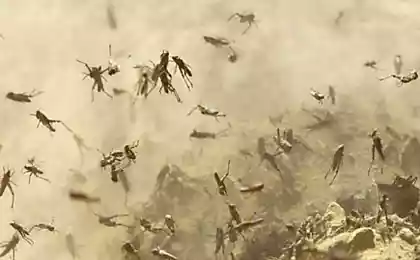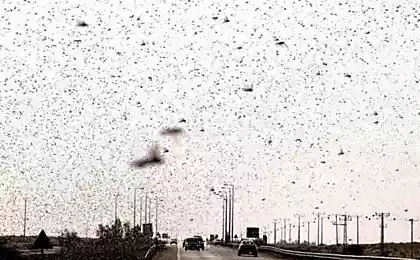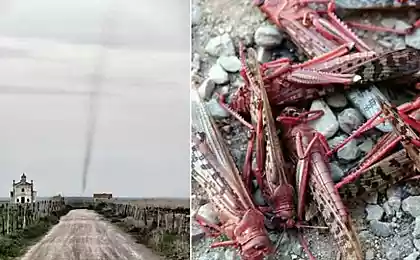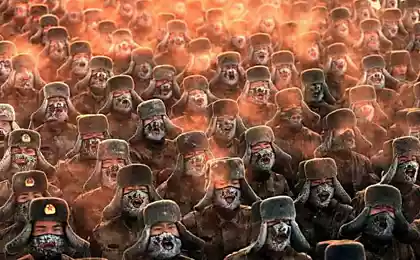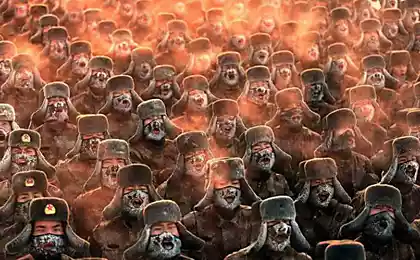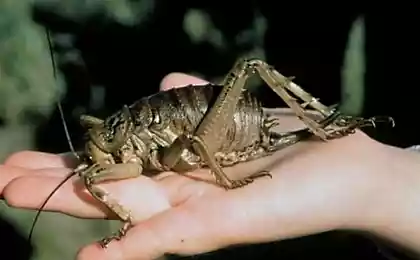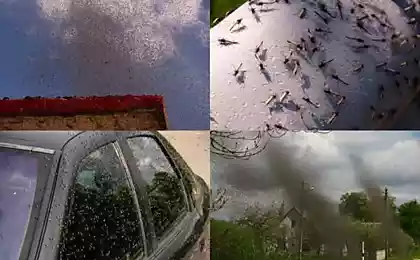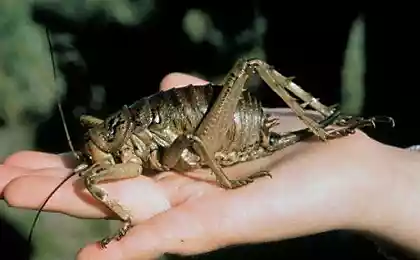1175
Locust invasion (14 photos)
The name "locusts" refers to the many members of the family of grasshoppers. Locusts - a representative group of insects belonging to the family «Acrididae». The so-called 17-year locusts actually not locusts, and the cicada.
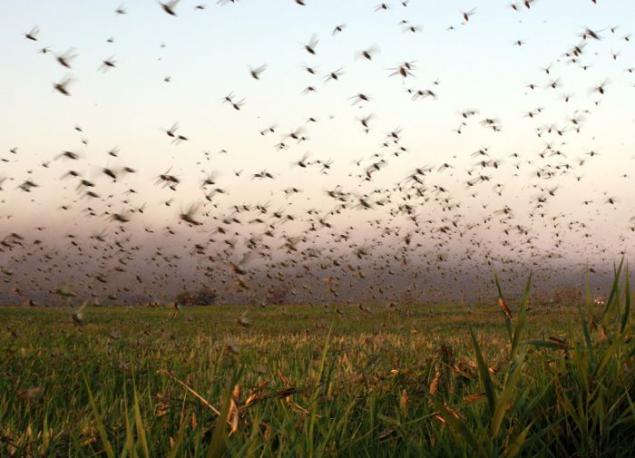
Many scientists are studying the question of why these insects at a certain time in a certain place to gather large flocks, and at other times seem to disappear.
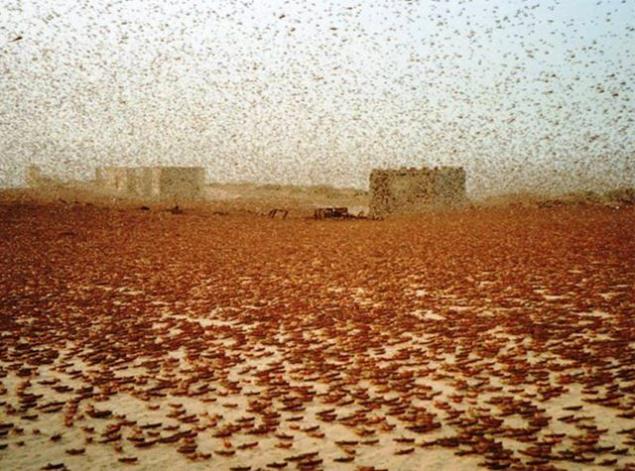
It turns out that those kinds of locusts, which accept such "invasion", there are two phases (or periods). In one phase, they exist singly in the other - groups. During these two periods of locusts - completely different. It varies in color, shape, structure, and behavior.
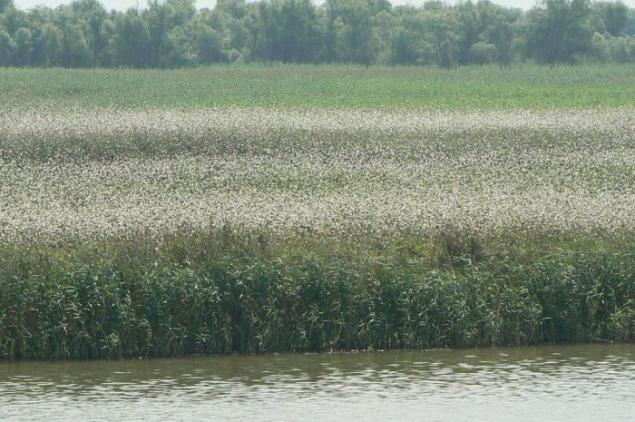
In the phase of the existence of a single locust swarms and is not going to behave sluggishly. Insects coloring coincides with the environment. In the group phase of the locust has a black or yellow, going in large groups, behaves actively agitated, and in addition, insects and even fever
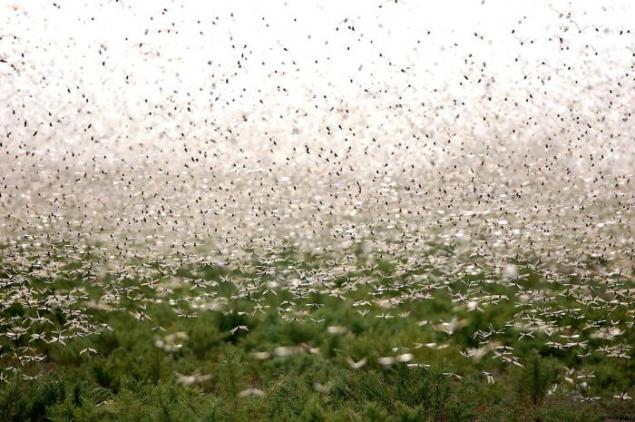
When for some reason forced to gather locusts, insects in a single phase produce offspring group type.
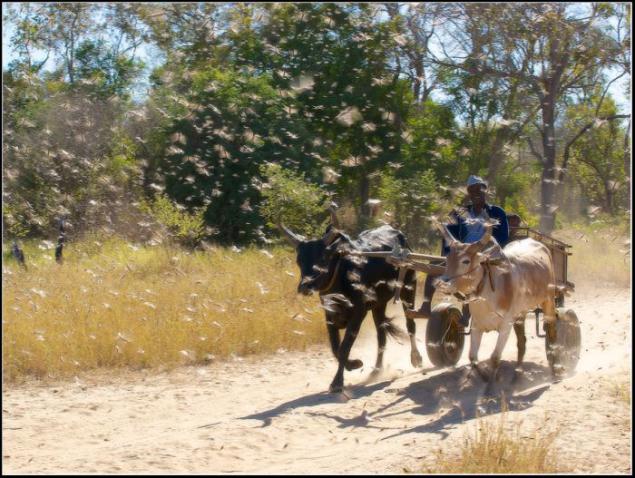
These individuals are mobile and irritable; they begin to move, together with others, gather huge flocks, and soon millions of insects ready to fall upon any region
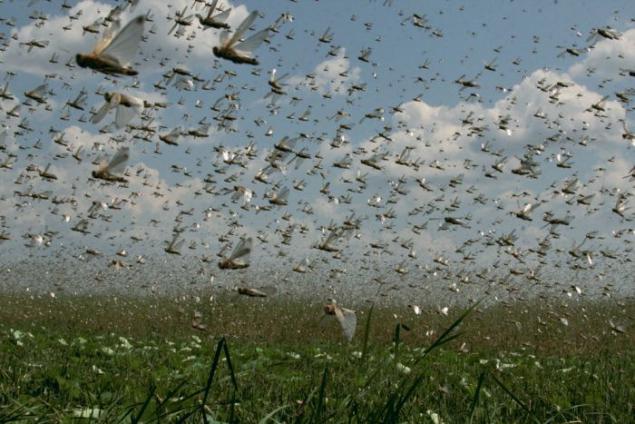
In 1824 there was a locust invasion in New Russia, to combat it was seconded Pushkin. He described it this way:
May 23 - flew flew
May 24 - and sat
May 25 - Sat, sat
May 26 - All ate
May 27 - again flew
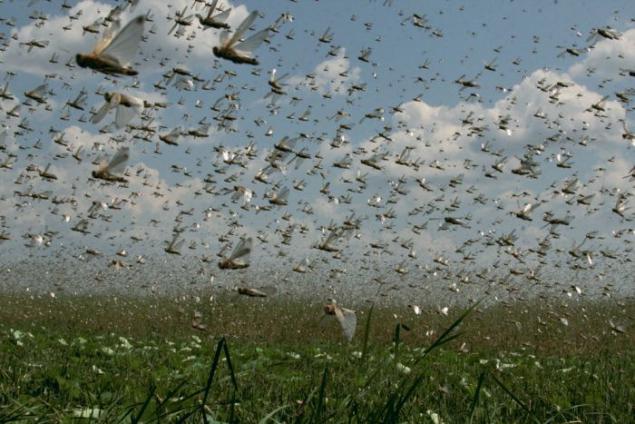
Swarms migrating destroy all green spaces in the path, and with great speed.
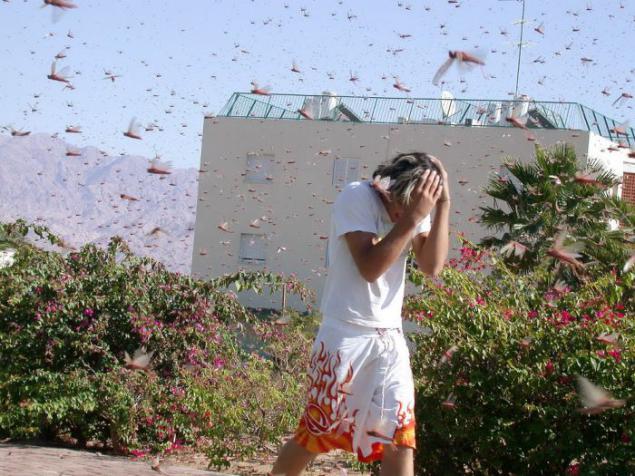
In some areas visited by the locusts were observed death of animals due to lack of food.
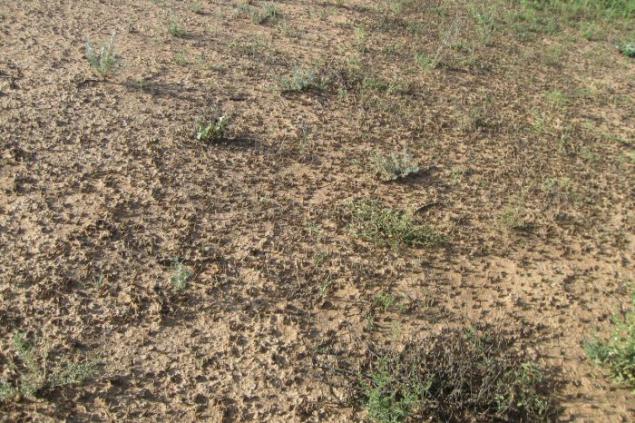
History shows that human history is the strongest locust invasion occurred in 1875 in the United States. Roy of the locusts originated in the state of Texas and quickly spread to the west, but after a while, even producing a huge devastation, for some unknown reason, simply disappeared, vanished
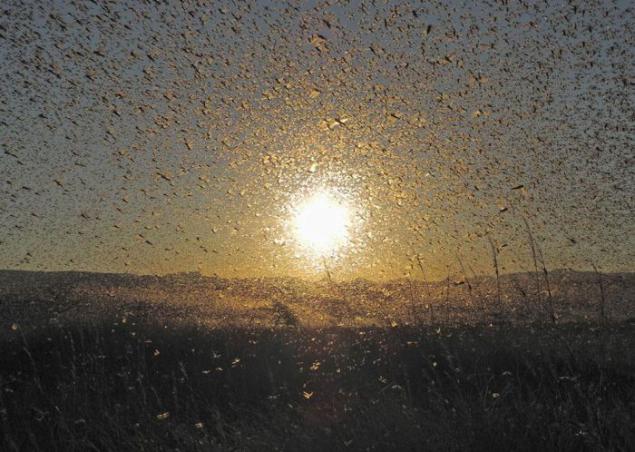
At present, the locusts have not yet become one of the centers of the possible catastrophic consequences, however, due to climate change, destruction of birds and other factors, the predator may soon become another "plague." Which will have to fight ruthlessly and without delay.
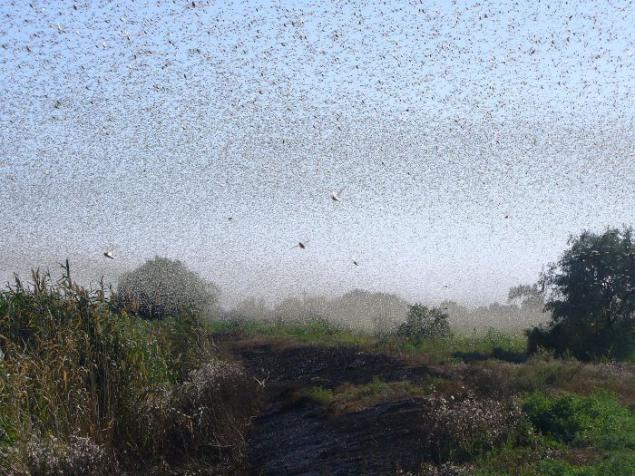
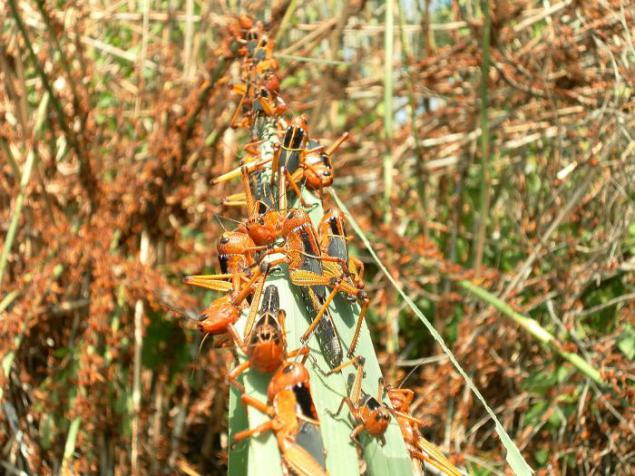
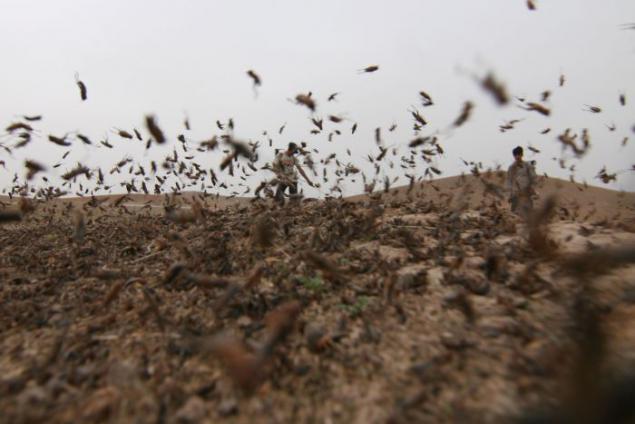
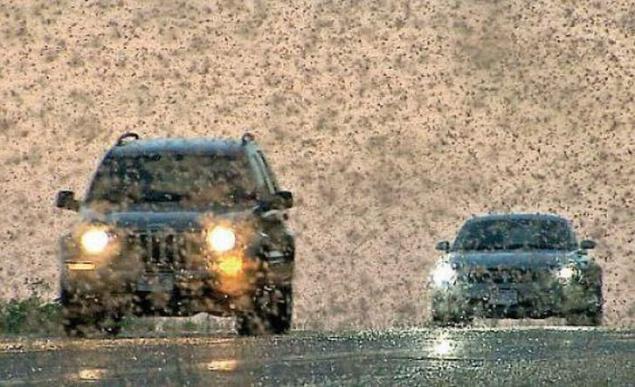

Many scientists are studying the question of why these insects at a certain time in a certain place to gather large flocks, and at other times seem to disappear.

It turns out that those kinds of locusts, which accept such "invasion", there are two phases (or periods). In one phase, they exist singly in the other - groups. During these two periods of locusts - completely different. It varies in color, shape, structure, and behavior.

In the phase of the existence of a single locust swarms and is not going to behave sluggishly. Insects coloring coincides with the environment. In the group phase of the locust has a black or yellow, going in large groups, behaves actively agitated, and in addition, insects and even fever

When for some reason forced to gather locusts, insects in a single phase produce offspring group type.

These individuals are mobile and irritable; they begin to move, together with others, gather huge flocks, and soon millions of insects ready to fall upon any region

In 1824 there was a locust invasion in New Russia, to combat it was seconded Pushkin. He described it this way:
May 23 - flew flew
May 24 - and sat
May 25 - Sat, sat
May 26 - All ate
May 27 - again flew

Swarms migrating destroy all green spaces in the path, and with great speed.

In some areas visited by the locusts were observed death of animals due to lack of food.

History shows that human history is the strongest locust invasion occurred in 1875 in the United States. Roy of the locusts originated in the state of Texas and quickly spread to the west, but after a while, even producing a huge devastation, for some unknown reason, simply disappeared, vanished

At present, the locusts have not yet become one of the centers of the possible catastrophic consequences, however, due to climate change, destruction of birds and other factors, the predator may soon become another "plague." Which will have to fight ruthlessly and without delay.




